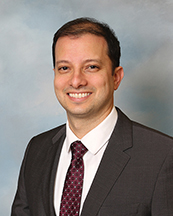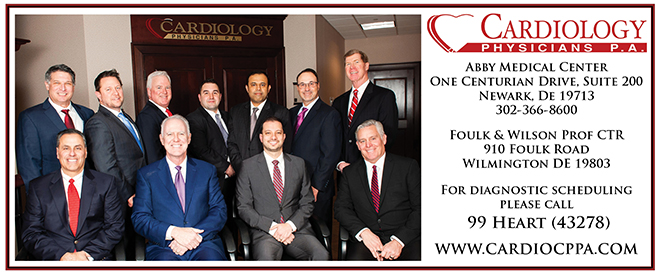Atrial Fibrillation

By Max M. Weiss, M.D., F.A.C.C., F.H.R.S.
Atrial fibrillation is the most common heart rhythm disorder in adults, affecting over 33 million people worldwide. It is an abnormal heart rhythm where electrical activity in the top chambers of the heart becomes very fast and chaotic. This results in an irregular and often rapid heartbeat. Patients with atrial fibrillation may experience a rapid or irregular heartbeat, shortness of breath, chest discomfort, lack of energy or lightheadedness. Atrial fibrillation affects every person differently – some have mild symptoms, while others feel poorly and may require a trip to an emergency department for urgent treatment.
The risk of developing atrial fibrillation increases as we get older. By age 65, 5% of adults will have experienced atrial fibrillation, and that prevalence increases to 10% by age 80. Atrial fibrillation is more common in patients with high blood pressure, diabetes, obesity, coronary or valvular heart disease, congestive heart failure, sleep apnea and thyroid disease. While atrial fibrillation requires an EKG in a doctor’s office to diagnose, it is often discovered for the first time on a routine physical exam or even while wearing an equipped smart watch.
When we see patients with atrial fibrillation for the first time, we first review the patient’s medical history and perform a thorough physical exam to determine if there are any clear causes or risk factors we can identify and treat. This might require further testing such as bloodwork, an echocardiogram, heart monitor, stress test, or sleep study. Second, we discuss that atrial fibrillation can increase the risk of stroke from small blood clots forming inside the heart. We calculate each patient’s risk for stroke; for those at high risk we often start a medication to act as a blood thinner. We then individually tailor our treatment plan for each patient based on their symptoms, medical history, and goals of care.
Treatment for atrial fibrillation can involve medications, or procedures for more definitive treatment. Some medications are designed to keep your heart from becoming too rapid (“rate control” medication), while others can convert you out of atrial fibrillation and back to a normal heart rhythm (“antiarrhythmic” medication). While many patients are successfully treated with an antiarrhythmic medication, the long-term effectiveness can vary depending on the patient and medication selected. Some patients may require a short procedure under anesthesia, where the heart is shocked back to a normal rhythm (“cardioversion”). In situations where medications or cardioversions are ineffective, cause side effects, or are not desired by the patient, we often perform a minimally invasive procedure called a catheter ablation. Catheter ablation is a low-risk procedure and more effective than medications to treat atrial fibrillation. Atrial fibrillation ablation has developed rapidly over the past 30 years and is among the most common procedures performed by a specially trained cardiologist who specializes in heart rhythm disorders, called an electrophysiologist. Atrial fibrillation ablations are performed by an electrophysiologist in a hospital while under anesthesia. The procedure involves locating areas inside the heart that trigger atrial fibrillation, and treating these areas to render them incapable of generating the electrical activity that causes atrial fibrillation. This is performed with precision using a catheter that heats (“radiofrequency”) or freezes (“cryoablation”) this tissue. The procedure takes approximately two hours and most patients are discharged home the same day of their procedure. The success rate is higher than any antiarrhythmic drug and is low risk, with a major complication rate of 1-2%.
At Cardiology Physicians, we offer comprehensive evaluation and treatment for all heart rhythm disorders including atrial fibrillation. Dr. Weiss performs cardiac ablations for appropriately selected patients to improve their cardiovascular outcome and quality of life. Patient evaluation can be arranged by calling 302-366-8600.
Bio
Dr. Weiss attended medical school at Emory University and completed his Internal Medicine residency at the University of Illinois in Chicago, where he served as Chief Medical Resident. He continued his training in cardiovascular diseases at Thomas Jefferson University Hospital in Philadelphia, PA where he received the Matthew V. Decaro M.D. Award for excellence in critical care cardiology. He completed his fellowship in Electrophysiology at the University of Michigan.
Dr. Weiss provides clinical care in all aspects of general cardiology and cardiac electrophysiology. His clinical interests within electrophysiology include ablation of complex atrial and ventricular arrhythmias, supraventricular tachycardia and implantation of defibrillators, pacemakers, biventricular devices, leadless pacemakers and left atrial appendage occlusion devices. He was the third physician in the world to implant a MICRA leadless pacemaker in the left ventricle for a patient with repaired transposition of the great arteries. Dr. Weiss has additional experience in the management of cardiovascular disease in athletes, having served as the Sports Cardiology fellow for Simon’s Heart Foundation in Philadelphia, PA during his training and performed cardiovascular screening of NFL and NCAA football players. He has authored several manuscripts and abstracts on supraventricular tachycardia, athlete ECG and echocardiogram interpretation, and the utility and application of mobile ECG devices.
Dr. Weiss was born and raised in Clearwater, FL and is an avid Florida Gators fan. He and his wife were married in 2013 and have two children. Dr. Weiss enjoys spending time with his family, playing golf, ice hockey and running.
Cardiogoly Physicians P.A.
Abby Medical Center 302-366-8600 One Centurian Drive, Suite 200 Newark, DE 19713
Foulk & Wilson Professional Center 910 Foulk Road Wilmington DE 19803
For diagnostic scheduling please call 99 Heart (43278)
Follow @cardiocppa on facebook


